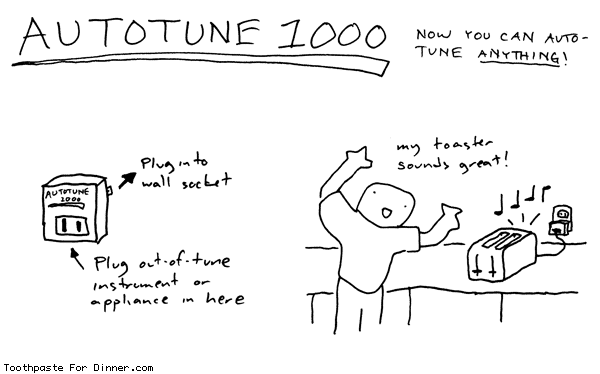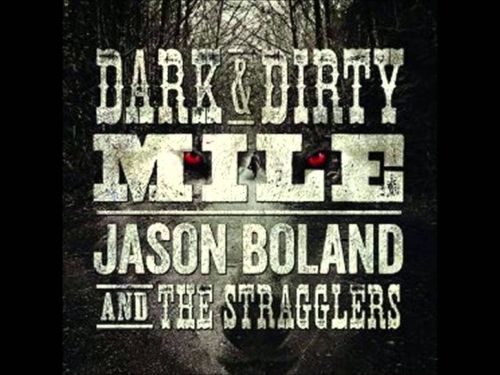Melissa Etheridge Tells You How You Should Feel about Auto-Tune
10 years ago Liv Carter Comments Off on Melissa Etheridge Tells You How You Should Feel about Auto-Tune

There are several debates in music that I am growing increasingly weary of. The Great Auto-Tune Controversy is quite possibly at the top of that list.
Melissa Etheridge is the latest artist to weigh in. Sat atop a very high horse, she wrote a short piece for Billboard essentially explaining that if you use Auto-Tune, you suck. Her smug piece is totally devoid of nuance, throwing all instances of the program’s use together and condemning them en masse.
It’s true: I do not use Auto-Tune. I learned the art of performing in places like Bud and Faye’s roadside bar and the Parents Without Partners dances at the Knights of Columbus — gigs where you were in danger of getting a beer bottle thrown at you if you sang off-key.
And I bet she had to walk through the snow to get there, uphill, both ways. Yes, there is a lot to be said for learning a craft the way she did, but what if that is not the path you are asked to take? And being a good performer is not only measured by singing in key.
Times have changed and artists are led to the studio where they lay down impossibly dense recordings that blast out of the radio at you, but would require a 20-piece band to re-create on the road. That’s not where they want to spend their money, so they don’t.
Yes? And? Making music in a studio and making music on stage are two entirely different things. There is nothing wrong with changing instrumentation and arrangements when it comes time to take the show on the road.
In 1970, robotics specialist Masahiro Mori published a paper introducing the concept of the “uncanny valley,” referring to the negative response people have when we observe something that seems human but is not […]
Oh great, an Argument from Authority. Of course, the man was talking about what happens when robots are too perfect in appearance to the point of being eerie, not about an actual real human voice which was, mildly or intensely, digitally altered.
[sigh]Human beings are wired to recognize the soul, the living spirit in each other. I believe the more technology re-creates what the human can do, the more precious the real thing becomes.
No amount of technology, no Auto-Tune wizardry, can satisfy the souls that want to be touched in the moment when a human being takes the stage and uses their vocal cords and emotions in ways that can move us to tears.
And yet… Some of the tours boasting the highest ticket sales include Cher, One Direction, Jay Z and Beyonce, Taylor Swift, Lady Gaga. I think those fandoms add up to a whole lot of “satisfied souls”! It’s not my thing either, but if the people buying the tickets have a great experience, than who am I to insist that they shouldn’t?
Look, I understand what Etheridge is saying, I really do. But this isn’t a good vs evil issue, but rather one which calls for a lot of nuance.
So what if some performers (or rather, their producers) reach for digital help? Every performance is altered anyway, unless Etheridge would like us to believe there’s no reverb on her mic either.
As the debate reached country music, and purists insisted that “real singers” don’t use it, it was always worth pointing out that the first artist to embrace it was…George Strait. No, he obviously doesn’t need it, but producer Tony Brown and Strait turned to the computer to experiment with his voice, and to explore new creative avenues by playing with his voice.
It is not my favorite thing but there is a more annoying use – when it’s overused for no apparent reason. I think we can all agree that Carrie Underwood does not need digital help, but a song like ‘See You Again’ was tuned so sharply that I can’t listen to it. Listen to the long vowels at the end of phrases and you will hear a computer. The reason it bothers me is because it takes me out of the song. If I am distracted by those points where the computer takes over, I am prevented from fully enjoying the song.
There are instances of Auto-Tune use, like Jerrod Niemann‘s ‘Drink to that All Night,’ or pretty much the entire new Maroon 5 album, where it’s used openly and for creative reason. Then there are those entertainers whose performance you probably wouldn’t quite enjoy as much without assistance. This is mainly what Etheridge objects to.
But here is what she, and many other people, aren’t getting: a large section of the ticket- and record-buying public doesn’t care about, or doesn’t even hear, the use of Auto-Tune. They don’t care. They choose to consume music in a different way than Etheridge thinks they should, and why should they be wrong?
A Nashville producer is quoted as having said: “Tim McGraw’s a star because he chooses great songs and he makes them into great records. People react to them, and the audiences go crazy at his live shows. Isn’t that what it’s all about?”
Yes. Yes, it is.
So, where do you stand on Auto-Tune? Do you tolerate it, wish it didn’t exist, or don’t really care as long as you enjoy the songs?
Liv Carter
She holds several certificates from Berklee College of Music, and a certificate in Positive Psychology from UC Berkeley.
Her main influences are coffee, cats, and Alexander Hamilton.
Latest posts by Liv Carter (see all)
- Well yes, racism, but it’s more complicated - February 13, 2017
- Black River Entertainment had a great reason to party! - October 25, 2016
- Keith Urban returns to the States for US arena leg of his “ripCORD WORLD TOUR 2016” - October 10, 2016


